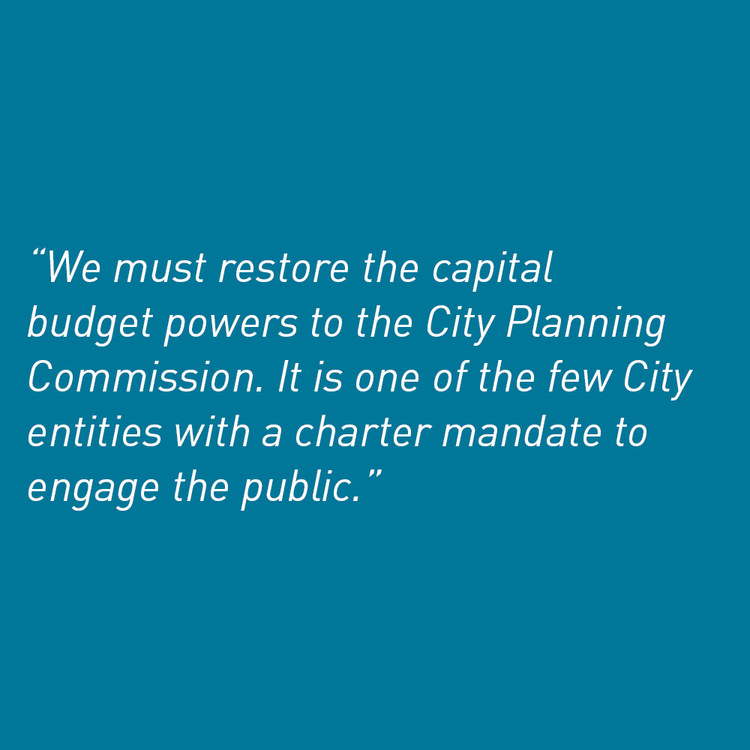
The next mayor will need to move quickly, decisively, and transparently to face the pivotal issues left unaddressed over the last two decades. Whether it is to sustain Mayor Bloomberg’s signature achievement —PlaNYC2030 — and his coastal recovery and adaptation strategy; to address his failure to accommodate the city’s homeless population; or to confront the ‘sorting’ of the city that is pushing the poor to the periphery, the next administration must aggressively engage New Yorkers in a coordinated and participatory way. The ability to plan, prioritize, and apply capital infrastructure expenditures—subject to the participation of the public and consent by City Council—will be essential.
NYC residents and businesses need to help set the framework for public and private investment; otherwise, land use decisions are liable to languish in courts for years. The framework for participatory planning exists in the City Planning Commission and our ULURP process. However, the capital budget powers of the Planning Commission were removed at the time that ULURP was strengthened, which has relegated City Planning to being a responsive agency unable to effectively engage in the planning, adoption, and implementation of mayoral-, agency-, or community-initiated plans.
We must restore the capital budget powers to the City Planning Commission. It is one of the few City entities with a charter mandate to engage the public. If that engagement is linked to reinvigorated citywide and community-based planning processes, maintained by a properly staffed agency that works directly with strengthened community boards, the City Planning Commission can become the proactive, independent and sustained force we need to address critical climate change and equitable development challenges facing the city.